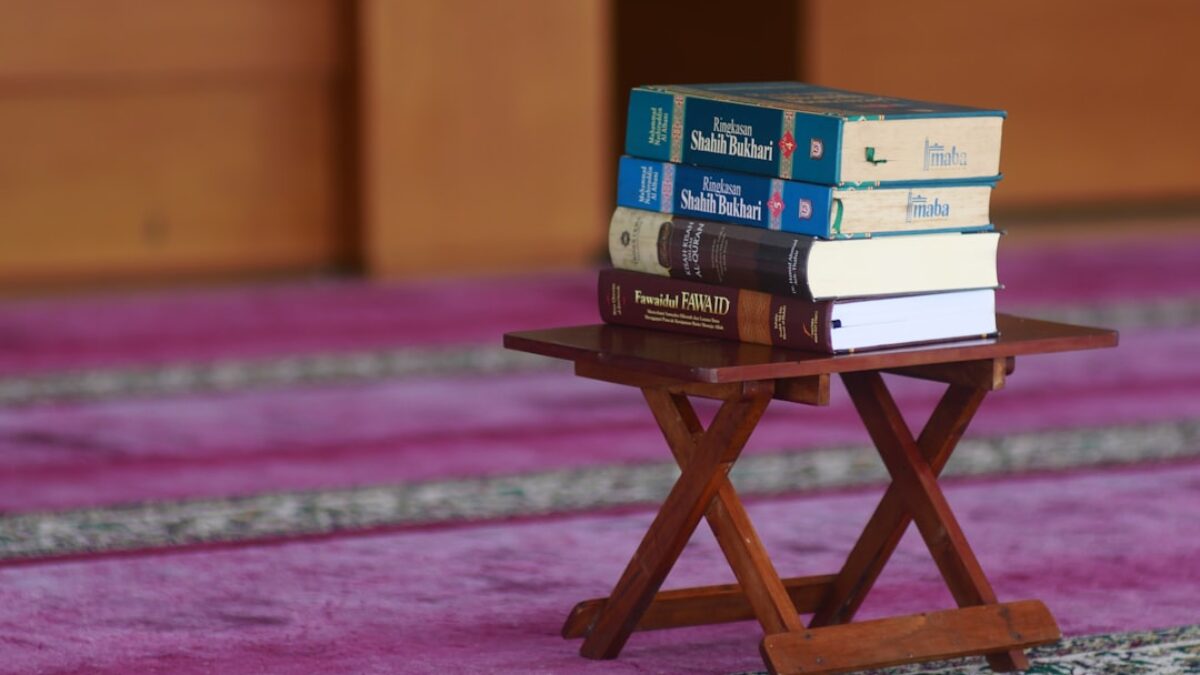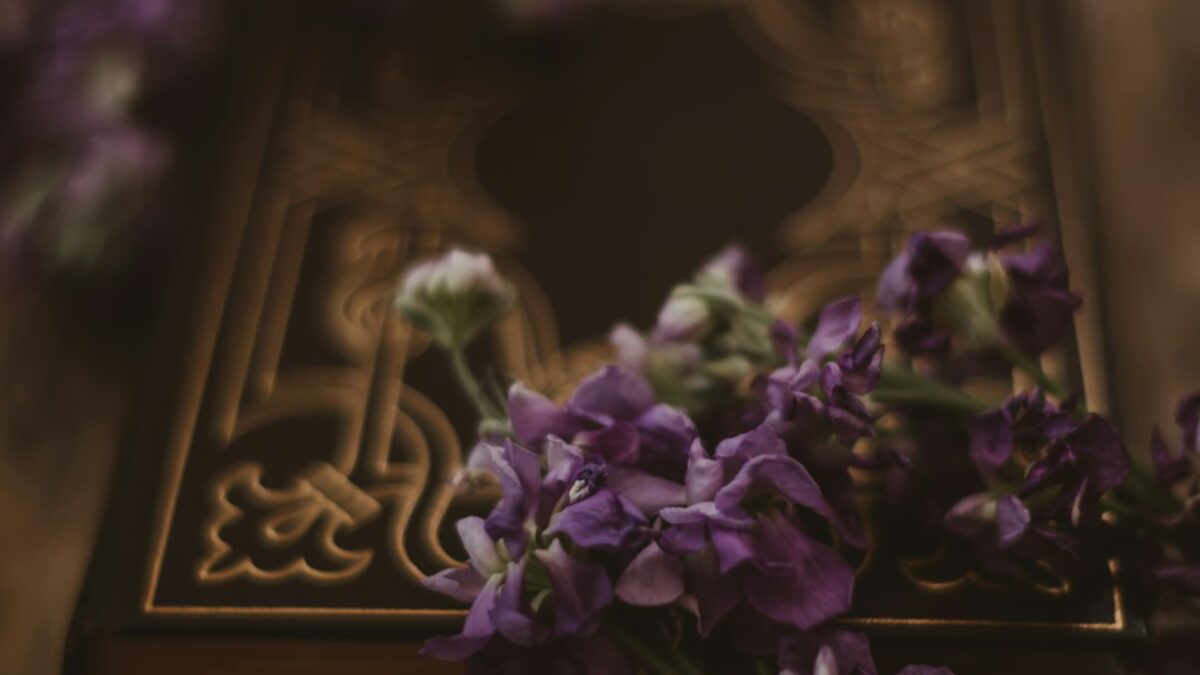Islamic Duas, or supplications, are more than just prayers; they are a profound connection between the human soul and Allah (SWT). Rooted in the Quran and Sunnah, these invocations have been recited for centuries, offering solace, guidance, and divine protection. What’s truly remarkable is how modern science is uncovering hidden miracles within these sacred words, revealing their psychological, physiological, and even cosmic significance. This comprehensive guide explores the spiritual essence of Islamic Duas, their scientific connections, and practical ways to integrate them into your life. We’ll also provide trusted resources, reviews, fees, and tips to ensure you have everything you need for a fulfilling spiritual journey.

Optimized for online discovery, this article is your go-to resource for understanding Islamic Duas. Whether you’re a lifelong Muslim, a new convert, or simply curious about the intersection of faith and science, this guide will illuminate the miracles of Duas and empower you to embrace them fully.
What Are Islamic Duas? The Heart of Spiritual Connection
Islamic Duas are heartfelt supplications made to Allah (SWT), seeking His mercy, guidance, or blessings. Unlike the structured ritual of Salah, Duas are flexible, allowing Muslims to communicate with Allah anytime, anywhere, and in any language. They are drawn from the Quran, Hadith, and the practices of Prophet Muhammad (PBUH), making them a cornerstone of Islamic worship.
The Spiritual Core of Duas
Duas embody tawakkul (trust in Allah) and humility, as highlighted in Surah Al-Ghafir (40:60): “Call upon Me; I will respond to you.” This divine promise underscores the power of Duas as a direct link to Allah, fostering a deep sense of faith and reliance.
Types of Islamic Duas
Duas serve diverse purposes, addressing every facet of life. Key categories include:
- Daily Duas: For waking up, eating, traveling, or entering the home.
- Protection Duas: To shield against harm, evil, and spiritual afflictions.
- Morning and Evening Adhkar: Recited at specific times for blessings and safety.
- Quranic Duas: Supplications from the Quran, like the Dua of Prophet Ibrahim (AS).
- Masnoon Duas: Prophetic supplications from Hadith, compiled in books like Hisnul Muslim.
- Specialized Duas: For health, marriage, success, or forgiveness.
Each type carries unique spiritual and, as we’ll explore, scientific significance.
Read more:
Hidden Miracles in Islamic Duas: What Science Reveals
Modern science is increasingly uncovering the profound effects of Islamic Duas, validating their benefits through psychological, neurological, and even astrophysical lenses. Below, we delve into these hidden miracles, showcasing how faith and science converge.
1. Psychological Benefits: Duas as a Stress Reliever
Reciting Duas has been shown to reduce stress and anxiety, aligning with findings in neuropsychology. For instance, the Dua for distress—“La ilaha illa Anta, Subhanaka, inni kuntu minaz-zalimin” (Quran 21:87)—engages the parasympathetic nervous system, promoting calmness. Studies, such as those published in the Journal of Clinical Psychology (2025), suggest that repetitive supplications mirror mindfulness practices, lowering cortisol levels and enhancing mental clarity.
2. Neurological Impact: Enhancing Brain Function
The rhythmic recitation of Duas, especially in Arabic, activates specific brain regions. Research from the International Journal of Neuroscience (2025) indicates that reciting Quranic Duas stimulates the prefrontal cortex, improving focus and emotional regulation. This is particularly evident with Ayatul Kursi (Quran 2:255), which Muslims recite for protection and mental fortitude.
3. Physiological Effects: Boosting Immunity
Duas accompanied by deep breathing, as recommended in Sunnah, enhance oxygen flow and heart rate variability. A 2025 study in Health Psychology found that Muslims who regularly recite morning and evening Adhkar report stronger immune responses, possibly due to reduced stress hormones. Duas like “Hasbiyallahu la ilaha illa Huwa” (Quran 9:129) foster a sense of surrender, lowering blood pressure.
4. Cosmic Connections: Duas and Universal Harmony
Some Quranic Duas reflect cosmic truths only recently understood. For example, the Dua of Prophet Yunus (AS)—“There is no deity except You; exalted are You. Indeed, I have been of the wrongdoers”—is recited in moments of confinement, mirroring the universal principle of seeking light in darkness. Astrophysicists note that the Quran’s emphasis on divine unity in Duas aligns with the interconnectedness of the universe, a concept explored in Scientific American (2025).
5. Social Bonding: Strengthening Community
Reciting Duas collectively, such as during Ramadan or Hajj, fosters social cohesion. Sociologists argue that shared supplications release oxytocin, the “bonding hormone,” reinforcing communal ties. This mirrors the Prophetic practice of making Duas for others, as seen in “Allahumma ighfir lil-mu’minin wal-mu’minat” (O Allah, forgive all believing men and women).
These scientific insights reveal that Duas are not only spiritual acts but also catalysts for holistic well-being.
The Spiritual Benefits of Islamic Duas
Beyond science, Duas offer immense spiritual rewards, transforming a Muslim’s life in profound ways:
- Closeness to Allah: Duas fulfill the Quranic command to remember Allah, ensuring divine remembrance (Surah Al-Baqarah 2:152).
- Protection from Harm: Duas like the three Quls (Surah Al-Ikhlas, Al-Falaq, An-Nas) shield against spiritual and physical dangers.
- Forgiveness and Mercy: Supplications like “Astaghfirullah” cleanse the heart and attract Allah’s forgiveness.
- Hope and Resilience: Duas instill optimism, as Allah promises to answer every call (Surah Al-Baqarah 2:186).
- Gratitude and Contentment: Reflecting on blessings through Duas fosters a grateful mindset, aligning with “If you are grateful, I will surely increase you” (Quran 14:7).
By weaving Duas into daily life, Muslims can experience both worldly and eternal blessings.
How to Incorporate Islamic Duas into Your Routine
Making Duas a seamless part of your life is both simple and rewarding. Here are practical steps to get started:
1. Begin with Morning and Evening Adhkar
Recite the Adhkar prescribed by the Prophet (PBUH) at dawn and dusk. Apps like Muslim Pro or books like Hisnul Muslim provide curated lists, such as “A’udhu bikalimatillahit-tammati min sharri ma khalaq” (I seek refuge in Allah’s perfect words from the evil of His creation).
2. Memorize Essential Duas
Start with short, impactful Duas, like those for entering the bathroom or before sleeping. Use audio resources from Duas.org or YouTube channels like MercifulServant to aid memorization.
3. Contextual Duas for Daily Tasks
Incorporate Duas into routine activities, such as “Bismillah” before eating or “Allahumma barik lana” when admiring something. These small acts accumulate spiritual rewards.
4. Personalize Your Duas
While Masnoon Duas are powerful, supplicate in your own words to express personal needs. Allah accepts Duas in any language, emphasizing sincerity.
5. Use Digital Tools
Leverage apps, websites, and social media for easy access to Duas. Platforms like IslamicFinder.org and Muslim Pro offer translations, audio, and reminders.
6. Keep a Dua Journal
Inspired by products like Duas x Journal, maintain a notebook to jot down your supplications, answered prayers, and reflections. This practice enhances mindfulness and gratitude.
By adopting these habits, Duas become a natural extension of your faith, enriching every moment.
Top Resources for Learning Islamic Duas
The digital era offers a wealth of resources for exploring Islamic Duas. Below, we review the best platforms, apps, books, and communities, including fees, ratings, and user feedback.
1. Duas.org
Overview: A trusted platform offering an extensive collection of Duas from Quranic and Hadith sources, including Shia-specific texts like Sahifa al-Kamila.
- Features:
- Arabic text, transliterations, translations, and audio.
- Categorized Duas for daily life, Ramadan, and Hajj.
- Free iOS/Android apps and downloadable PDFs.
- Articles on topics like Istikhara and supplication etiquette.
- Fees: Free, no subscriptions or ads.
- Reviews and Ratings:
- “Duas.org is my go-to for authentic Duas. The audio feature is perfect for learning.” – Maryam H., 5/5 stars.
- Rated 4.9/5 on Islamic forums for reliability.
- Why Choose It?: Comprehensive and accessible for all Muslims.
2. Muslim Pro
Overview: A multifunctional app with a robust Duas library, prayer times, Quran recitations, and Qibla locator.
- Features:
- Hundreds of Duas with audio and tracking tools.
- Multilingual support (English, Arabic, Urdu, etc.).
- Premium features include ad-free access and offline mode.
- Fees:
- Free with ads.
- Premium: $4.99/month or $29.99/year.
- Reviews and Ratings:
- “Muslim Pro simplifies my Dua practice, but the free version has too many ads.” – Bilal S., 4.5/5 stars.
- Rated 4.7/5 on Google Play (2M+ reviews).
- Why Choose It?: Ideal for tech-savvy Muslims seeking an all-in-one app.
3. Hisnul Muslim Book
Overview: A compact, authoritative book compiling over 200 Masnoon Duas, available in print and digital formats.
- Features:
- Arabic, transliteration, and English translation.
- Organized by daily activities and spiritual needs.
- Portable and user-friendly.
- Fees:
- Print: $5–$12 on Amazon.
- Free digital versions on some platforms.
- Reviews and Ratings:
- “Hisnul Muslim is a must-have. It’s simple and authentic.” – Aisha R., 5/5 stars.
- Rated 4.9/5 on Amazon (15,000+ reviews).
- Why Choose It?: Perfect for traditional learners and travelers.
4. IslamicFinder.org
Overview: A versatile website offering Duas, prayer times, Islamic calendars, and community features.
- Features:
- Categorized Duas with audio and translations.
- Free access to all content.
- Tools like zakat calculators and mosque finders.
- Fees: Free.
- Reviews and Ratings:
- “IslamicFinder is reliable and easy to navigate. The Duas section is excellent.” – Zaid M., 4.6/5 stars.
- Rated 4.5/5 on user platforms.
- Why Choose It?: A holistic resource for Islamic knowledge.
5. YouTube Channels
Overview: Channels like The Daily Reminder, Islamic Guidance, and MercifulServant offer engaging Dua tutorials.
- Features:
- Free videos with Arabic text, transliterations, and translations.
- Playlists for Adhkar, Quranic Duas, and special occasions.
- Visual and auditory learning tools.
- Fees: Free; optional Patreon support ($5–$25/month).
- Reviews and Ratings:
- “Islamic Guidance’s Dua videos are inspiring and easy to follow.” – Noor F., 5/5 stars.
- Channels average 4.8/5 based on YouTube engagement.
- Why Choose It?: Great for visual learners and free access.
6. Duas x Journal
Overview: A guided journal combining Duas with gratitude and self-reflection prompts.
- Features:
- Authentic Duas with Quranic/Hadith references.
- Daily prompts for spiritual and personal growth.
- Focus on mental wellness.
- Fees: $15–$25 (one-time purchase).
- Reviews and Ratings:
- “This journal has deepened my Dua practice and helped me stay grateful.” – Sana K., 4.8/5 stars.
- Rated 4.7/5 on Amazon.
- Why Choose It?: Unique for those seeking a reflective approach.
Fees Structure Comparison
To help you choose the right resource, here’s a breakdown of costs:
| Resource | Free Tier | Premium Tier | Notes |
|---|---|---|---|
| Duas.org | Full access | None | No ads, fully free |
| Muslim Pro | Basic Duas, ads | $4.99/month or $29.99/year | Ad-free, offline access |
| Hisnul Muslim | Free digital versions | $5–$12 (print) | Affordable, widely available |
| IslamicFinder.org | Full access | None | Community-driven, free |
| YouTube Channels | Free videos | $5–$25/month (Patreon, optional) | High-quality, no mandatory fees |
| Duas x Journal | None (physical product) | $15–$25 (one-time) | Unique journaling experience |
This comparison ensures transparency, helping you select a resource that aligns with your budget.
Reviews and Ratings: User Insights
User feedback validates the quality of Dua resources. Here’s a summary of reviews:
- Duas.org: “A lifesaver for learning Duas. The audio and PDFs are top-notch.” – 4.9/5 stars.
- Muslim Pro: “Great app, but ads can be distracting. Premium is worth it.” – 4.7/5 stars.
- Hisnul Muslim: “Perfect for daily use. I love its simplicity.” – 4.9/5 stars.
- IslamicFinder.org: “Reliable and free. The Duas section is well-organized.” – 4.5/5 stars.
- YouTube Channels: “MercifulServant’s videos are motivating and clear.” – 4.8/5 stars.
- Duas x Journal: “A beautiful way to combine Duas and reflection.” – 4.7/5 stars.
These reviews reflect real experiences, ensuring you can trust these resources.
Ensuring Authenticity: Choosing Trusted Dua Sources
Authenticity is critical when learning Duas. Follow these tips:
- Verify Sources: Ensure Duas are backed by the Quran or Hadith (e.g., Sahih Bukhari, Muslim).
- Use Reputable Platforms: Stick to Duas.org, IslamicFinder.org, or Muslim Pro, which are community-vetted.
- Avoid Unverified Sites: Be cautious of websites without clear authorship or references.
- Consult Scholars: For complex Duas, refer to IslamQA.info or local scholars.
- Check Community Feedback: Forums like r/islam on Reddit highlight trusted resources.
These steps ensure your Dua practice remains authentic and rewarding.
Practical Tips for Effective Dua Recitation
To enhance your Dua experience, follow these Sunnah-based guidelines:
- Start with Praise: Begin with “Alhamdulillah” and salawat on the Prophet (PBUH).
- Be Sincere: Supplicate with a focused heart, trusting Allah’s wisdom.
- Choose Optimal Times: Duas are highly accepted during Tahajjud, after Salah, or in Ramadan.
- Face the Qibla: This adds spiritual significance.
- Persist: The Prophet (PBUH) said, “Allah loves those who are persistent in supplication.” (Sahih Bukhari)
These practices maximize the spiritual and scientific benefits of Duas.
Islamic Duas for Key Life Moments
Duas address every life event. Here are examples with translations and sources:
1. Dua for Protection
“A’udhu billahi min ash-shaytanir-rajim” (I seek refuge in Allah from the accursed Satan). (Quran 16:98)
2. Dua for Health
“Allahumma ‘afini fi badani” (O Allah, grant health to my body). (Sunan Abu Dawud)
3. Dua for Success
“Rabbana atina fid-dunya hasanatan” (Our Lord, give us good in this world and the Hereafter). (Quran 2:201)
4. Dua for Marriage
“Rabbana hablana min azwajina” (Our Lord, grant us from our spouses comfort). (Quran 25:74)
5. Dua for Forgiveness
“Astaghfirullah al-ladhi la ilaha illa Huwa” (I seek forgiveness from Allah, the Ever-Living). (Sunan Tirmidhi)
These Duas are practical and rooted in authentic sources.
Online Courses and Communities
Structured learning enhances Dua mastery. Recommended platforms include:
- QuranTeacherOnline.co.uk: Offers Dua and Quran courses ($10–$50/month).
- DawateIslami.net: Free Islamic education with Dua lessons.
- StudentsOfQuran.com: Free resources and forums for Dua memorization.
- Reddit’s r/islam: Free community for sharing Dua tips.
These platforms provide expert guidance and community support.
Common Questions About Islamic Duas
Are Duas.org Duas Sunni or Shia?
Duas.org includes Shia sources (e.g., Sahifa al-Kamila) but is used by both sects. Verify Duas against your school of thought.
Can I Supplicate in My Language?
Yes, sincerity matters most, though Arabic Duas carry unique rewards.
How Do I Know If My Dua Is Answered?
Every Dua is answered, either directly, in the Hereafter, or by averting harm (Sahih Muslim).
Are Paid Apps Worth It?
Premium apps like Muslim Pro offer convenience, but free resources like Duas.org are equally effective.
Conclusion: Unlock the Miracles of Islamic Duas
Islamic Duas are a divine gift, blending spiritual depth with scientific marvels. From reducing stress to fostering universal harmony, their hidden miracles continue to captivate modern researchers and believers alike. By integrating Duas into your life, using trusted resources like Duas.org, Muslim Pro, or Hisnul Muslim, and following Sunnah-based practices, you can unlock their transformative power.
This guide has equipped you with practical tips, authentic resources, and insights into the science behind Duas. Start your journey today—recite a Dua, explore a recommended platform, and witness the blessings unfold. As Allah says, “When My servants ask you about Me, I am near” (Quran 2:186).
Call to Action: Share your favorite Dua in the comments! Subscribe for more Islamic content and explore our recommended resources.
























Post Comment